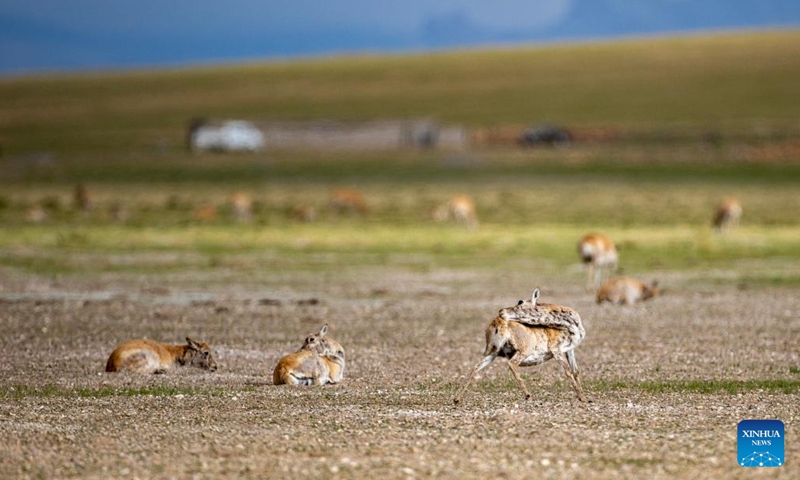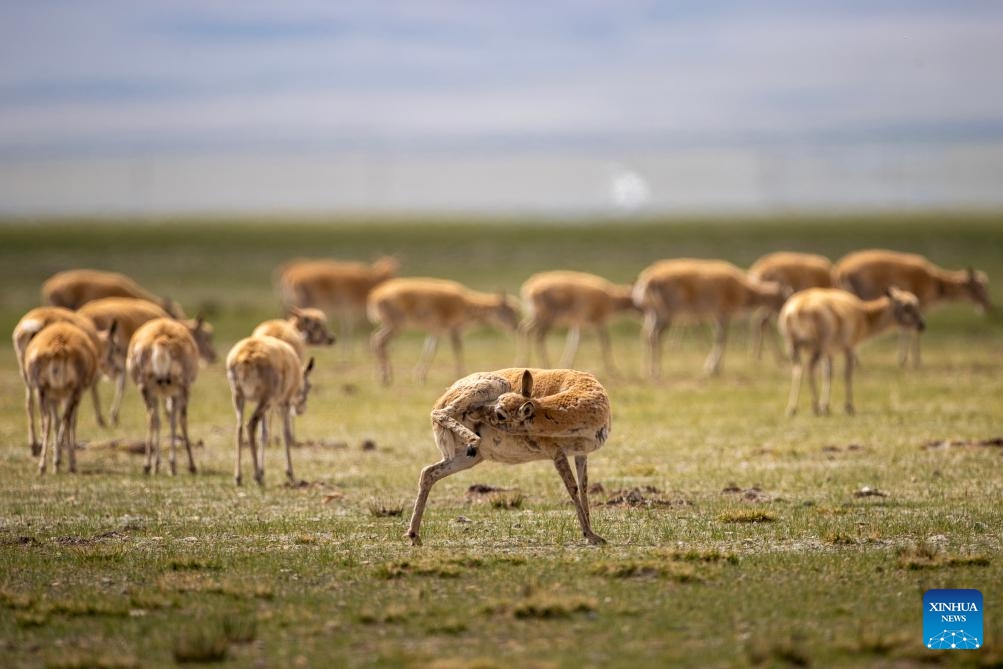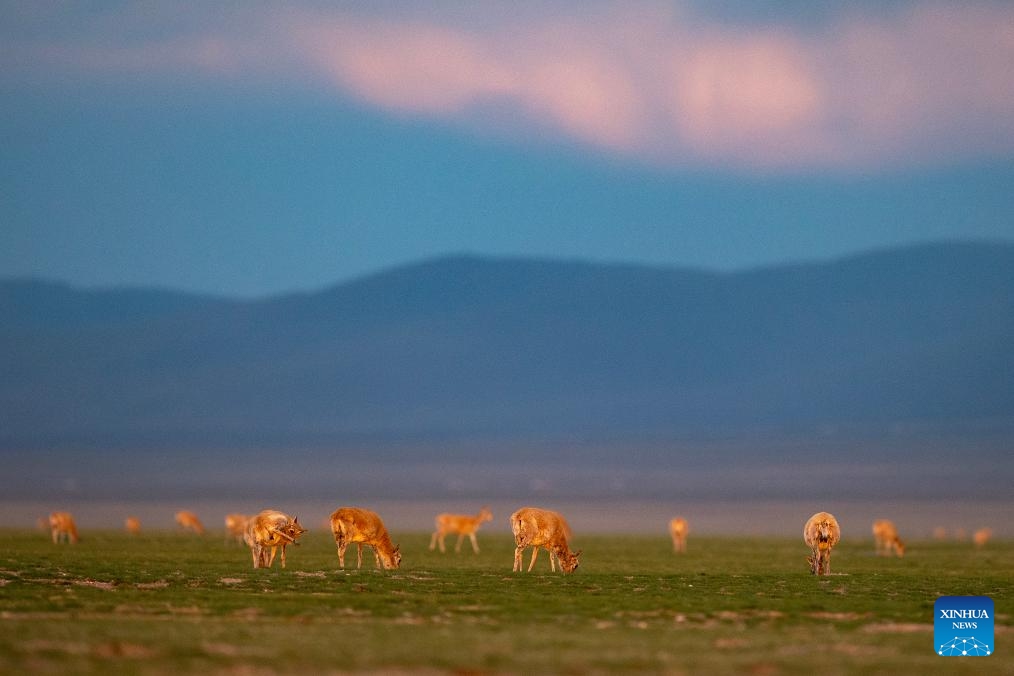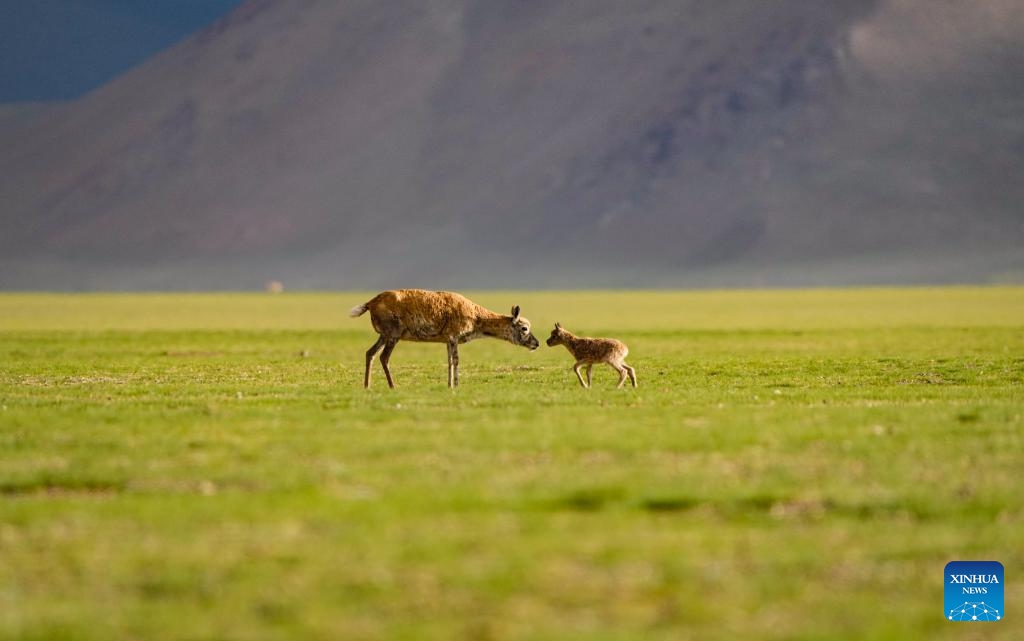
Pregnant Tibetan antelopes lick themselves to ease off the discomfort before parturition in Qiangtang National Nature Reserve in southwest China's Xizang Autonomous Region, June 17, 2024. Tibetan antelopes, a native species in China's Qinghai-Tibet Plateau under first-class state protection, have recently embarked on their birth-giving season. Their total population has exeeded 300,000, over 200,000 of which are living in Qiangtang National Nature Reserve.(Photo: Xinhua)

A pregnant Tibetan antelope licks herself to ease off the discomfort before parturition in Qiangtang National Nature Reserve in southwest China's Xizang Autonomous Region, June 17, 2024.(Photo: Xinhua)

Pregnant Tibetan antelopes graze at dusk in Qiangtang National Nature Reserve in southwest China's Xizang Autonomous Region, June 16, 2024.(Photo: Xinhua)

A Tibetan antelope and her newborn are pictured in Qiangtang National Nature Reserve in southwest China's Xizang Autonomous Region, June 16, 2024.(Photo: Xinhua)



